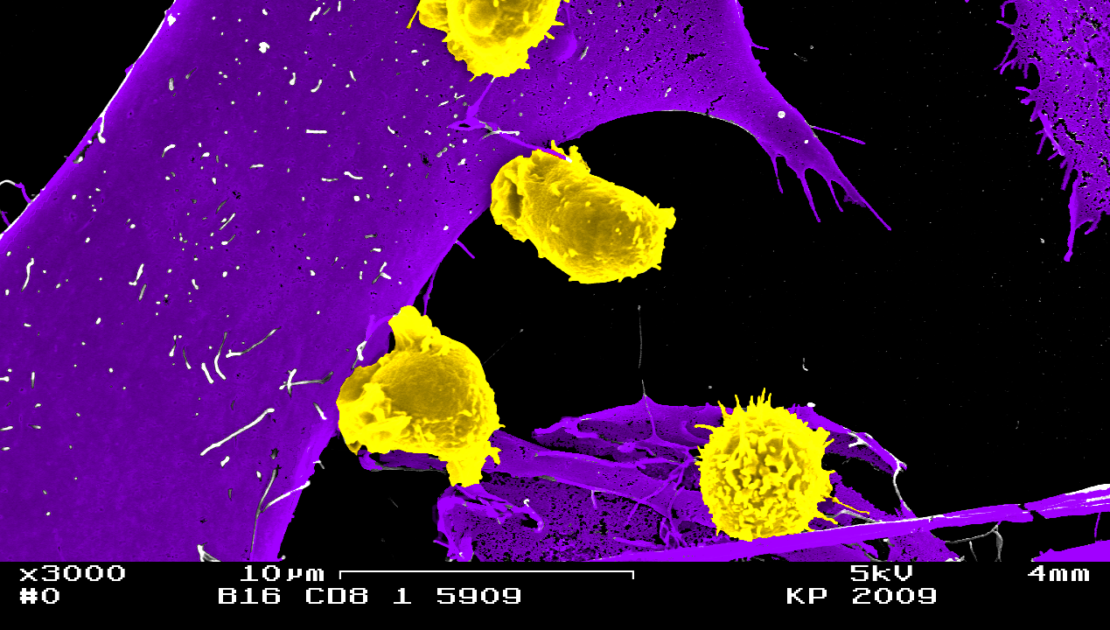invIOs is teaming up with the Medical University of Innsbruck on a new project to investigate the potential of an innovative CAR-T cell therapy approach to treat aggressive lung tumors. The collaboration is being supported by grant funding from the FFG Austrian Research Promotion Agency.
The new project will harness invIOs’s advanced cell modification technology and cutting-edge research into the causes of CAR-T cell therapy resistance in non-small cell lung cancer (NSCLC) by Professor Gottfried Baier, Director of the Institute for Cell Genetics at the Medical University of Innsbruck and a member of invIOs’s Scientific Advisory Board.
CAR-T cell therapies have emerged as a powerful tool in the fight against cancer in recent years. These approaches traditionally involve extracting T cells from a patient’s blood, and genetically modifying them to recognize and eliminate cancer cells upon reinfusion. This revolutionary treatment strategy is highly effective in eliminating blood cancers but has not yet shown significant results in treating solid tumors.
A key factor in this is the immuno-suppressive tumor micro-environment (TME), which plays a central role in the escape mechanisms that cancer cells use to evade detection and destruction by the immune system. Having worked together on many occasions previously, invIOs and MUI are now teaming up again with the goal of refining and enhancing the efficacy of CAR-T cell therapies against solid tumors by discovering additional insights into such escape mechanisms, and hence identifying druggable factors that can overcome resistance to treatment.
As with previous collaborations, the project will look at Cbl-b, which belongs to a class of proteins found in immune cells that are known to play a key role in inhibiting immune responses against cancer. Research by Professor Baier and his team has identified a suppressive role played by Cbl-b in immune cells that mediate tumor cell killing.
invIOs, meanwhile, targets Cbl-b with the first approaches from its EPiC cell-therapy platform, which have generated promising data in clinical trials. EPiC (Enhancement Platform for immune Cells) enables precise modification of factors that make CAR-T cells potentially inefficient in killing solid tumors.
Cbl-b (Casitas B-lineage lymphoma-b) is an E3 ligase that functions as an intracellular checkpoint in immune cells, thus acting as a regulator of immune responses. Cancer cells can exploit Cbl-b to dampen the immune response and avoid destruction by the immune system. In the context of CAR-T cell therapy, Cbl-b may impede the anti-tumor functions of the modified T-cells, leading to reduced effectiveness of the treatment against solid tumors.
Alexander Dohnal, Head of Research and Development at invIOs, explains:
“Initial results from our clinical trials indicate that deactivation of Cbl-b could contribute significantly to more targeted treatment of aggressive lung tumors. In the long term, we are planning clinical trials to investigate whether our tailored concept of these novel CAR-T cell therapies can improve the success rate in late-stage lung cancer patients. If our concept is confirmed in preclinical models, this technology could be expanded to other hard-to-treat indications. This would be a breakthrough for cell therapy treatments for patients with solid tumors.”
Professor Baier describes the goal of the project:
“We aim to substantially enhance the effectiveness of CAR-T immunotherapy against solid tumors like NSCLC, and simultaneously to stimulate anti-tumor immunity using the patient’s immune system. Our objective is to overcome the therapy resistances observed in the past and ensure lasting success.”
To learn more about the EPiC platform and invIOs’s science, please visit our website: https://www.invios.com/science/#platform


